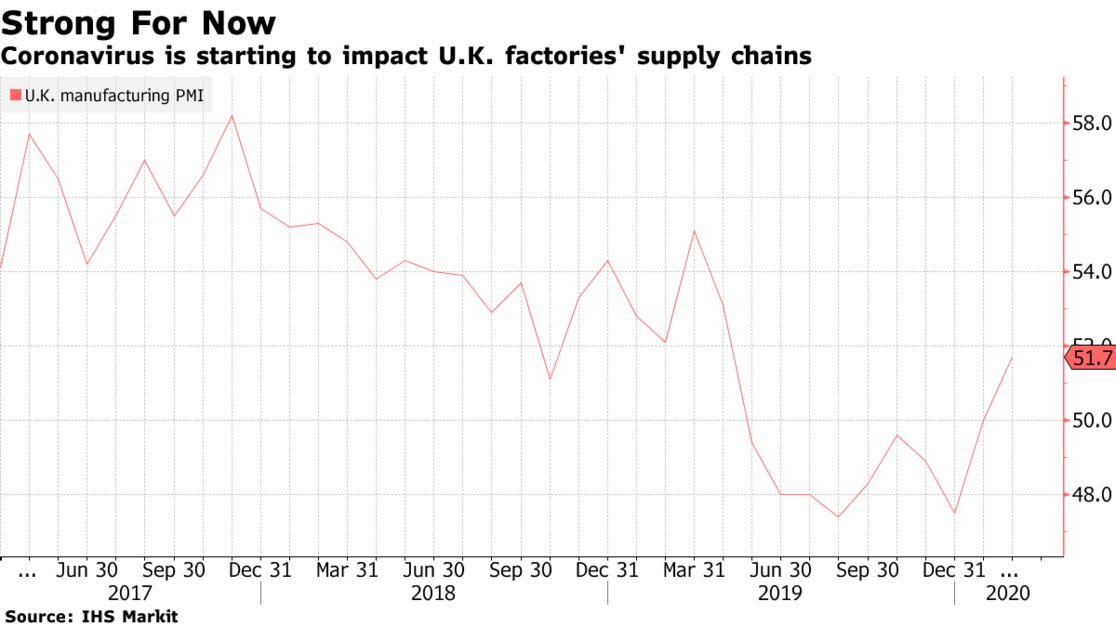The coronavirus outbreak is starting to feed through to British factory supply chains, casting doubt on whether an upswing in activity after Boris Johnson’s election will continue. IHS Markit said Monday that U.K. manufacturing grew slightly less in February than it first estimated. The index for output slipped to 51.7 from the initial 51.9 reading. The pound traded down 0.4% at $1.2766 as of 9:33 a.m.

The report showed that the outbreak led to material delivery delays, rising input costs and increased pressure on stocks of purchases. Overseas demand decreased for the fourth month. The figures come as Bank of England promised to “ensure all necessary steps are taken to protect financial and monetary stability.” Governor Mark Carney on Friday warned that the spread of the disease was already impacting the U.K. economy, disrupting companies’ operations and reducing tourism.
“The U.K. manufacturing sector remained in recovery mode,” said Rob Dobson, director at IHS Markit. “With supply-chain headwinds rising, and trade negotiations with the EU starting, it remains to be seen whether the recovery can stay on course during the coming months.” Some companies surveyed also reported efforts to re-route supply chains away from the U.K. following Brexit, contributing to weaker demand from the European Union, Markit said. Still, output rose at the fastest pace in ten months, according to the report.
Separately, the BOE on Monday said that mortgage approvals rose to the highest since since February 2016.
